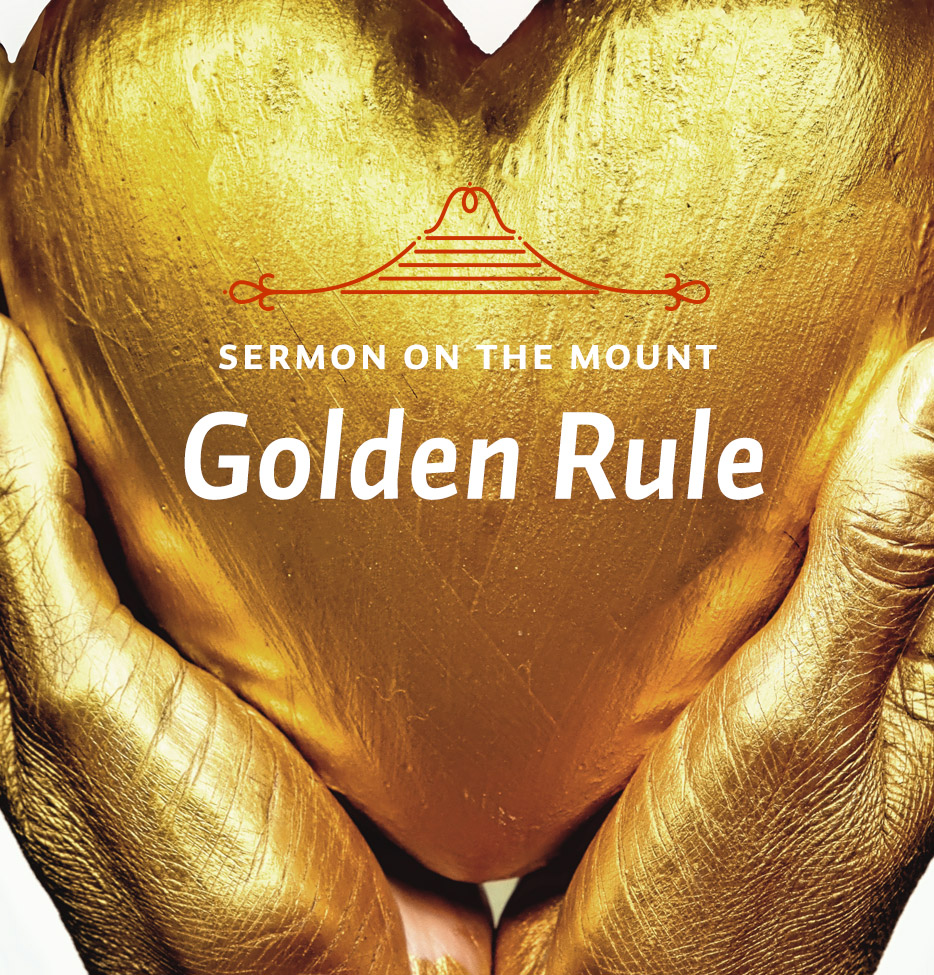Yesterday, we concluded by saying that if we think of a ruler as a straightedge, as the British call it, we then have the idea that what we call the Golden Rule shows us how morally crooked we are, compared with the perfect straightness of God’s moral purity.
This is the purpose of the whole law of which the Golden Rule itself is only a partial summary. What is it that Paul teaches us about the purpose of the law in Romans? He says, “Therefore, by the deeds of the law there shall no flesh be justified in his sight: for by the law is the knowledge of sin” (Rom. 3:20). Phillips, who is an Englishman and who knows the word straightedge, has paraphrased the text, “No man can justify himself before God by a perfect performance of the law’s demands—indeed it is the straightedge of the law that shows how crooked we are.”
Imagine a group of children sitting at their desks in an elementary school. The teacher says to the children, “We are going to draw a picture today, and I want you to begin by drawing a straight line down the center of your paper.” At this moment the principal sticks his head in the door, and the teacher has to step out for a moment. The children go on drawing, some very carefully and others with carelessness. The teacher is delayed, and in a few minutes the children are comparing their lines.
“My line is straighter than yours,” one child says. “No, it’s not,” the other child answers. Pretty soon the lines are compared, and it is soon clear that some lines are better and others are much worse. Some of the children say, “Well, Suzie has drawn the best line.” And most of them agree, except for George and Arthur, who say, “But she had a better pencil than we did.”
That is how it is when the teacher returns. Some of the children think their lines are quite straight. But if the teacher were then to take the straightedge and draw a second line on the paper of each child, even the best of the children’s lines would seem wavering and inadequate.
That is exactly what we have in human morality. Men draw the lines of the human character and then compare the lines to see whose line is straightest. “I’m straighter morally than you are.” “No, you’re not, I am.” “Arthur’s the best.” But then God enters and produces his straightedge, and we see that all human lines of character are crooked.
If a man could keep the Golden Rule—if, if, if, if, if, if—then he could step into heaven and say, “Move over God, and let me sit down on the throne with you. You gave your standard, and I’ve kept it. Therefore, I am as perfect as you are. It’s you and me from here on in.” If a man would keep that standard, he could take over heaven. But on the other hand, if a man sees that he has not kept it and that indeed in his own strength he will never be able to keep this standard, then he must take his place with all of lost humanity admitting that he has fallen short of the glory of God and deserves God’s judgment. To such men God comes with the offer of salvation, revealing that He has set forth His own Son to be their righteousness and to provide them with a heavenly life that alone of all lives is capable of pleasing Him.
Jesus, thy blood and righteousness
My beauty are, my glorious dress;
‘Midst flaming worlds in these arrayed,
With joy shall I lift up my head.
Jesus, be endless praise to thee,
Whose boundless mercy hath for me—
For me a full atonement made,
An everlasting ransom paid.
With such righteousness, and not a righteousness of our own making, we shall be accepted before God forever in the Beloved.






